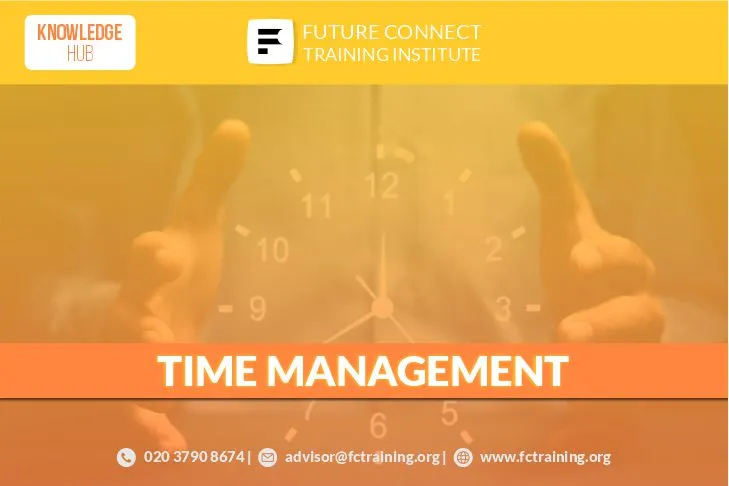
Introduction
Time management is crucial for accounting professionals, as it helps them increase productivity, reduce stress and meet deadlines effectively.
Time Management Strategies
In this article, we will discuss the best time management strategies for accounting professionals.
- Prioritize tasks: As an accounting professional, it is essential to prioritize your tasks. Make a list of all the tasks that need to be completed, and prioritize them based on their urgency and importance. This will help you focus on the most critical tasks first and avoid wasting time on less important ones.
- Set realistic goals: It is crucial to set realistic goals for yourself. Setting unrealistic goals can lead to stress and burnout, which can affect your productivity. Set achievable goals that are challenging but not overwhelming.
- Use technology to your advantage: Technology can be a powerful tool for time management. There are many software programs available that can help you streamline your workflow, such as accounting software, project management tools, and time-tracking software. These tools can help you save time and increase productivity.
- Avoid multitasking: Multitasking can be tempting, but it is not an effective way to manage your time. When you try to do too many things at once, you may end up doing none of them well. Focus on one task at a time, and give it your full attention until it is complete.
- Take breaks: Taking breaks is essential for your mental and physical health. It can help you recharge and refocus, which can improve your productivity. Take short breaks throughout the day to stretch, walk around, or do something else that relaxes you.
- Delegate tasks: Delegating tasks can be an effective way to manage your time. Identify tasks that can be delegated to others, such as administrative tasks or data entry. This will free up your time to focus on more critical tasks.
- Plan your day: Planning your day in advance can help you manage your time effectively. Take a few minutes at the beginning of each day to plan your schedule and prioritize your tasks. This will help you stay focused and avoid distractions throughout the day.
- Learn to say no: Saying no is an essential part of time management. When you take on too many tasks or projects, you may end up overworking yourself and compromising the quality of your work. Learn to say no to tasks that are not essential or that you cannot complete within the given timeframe.
- Manage distractions: Distractions can be a significant obstacle to effective time management. Identify the things that distract you, such as social media or email notifications, and find ways to manage them. For example, you can turn off your notifications or use an app that blocks distracting websites.
- Evaluate your progress: Regularly evaluating your progress can help you identify areas where you need to improve. Take some time each week to reflect on your accomplishments and identify areas where you can improve your time management skills.
Conclusion
In conclusion, time management is critical for accounting professionals. By prioritizing tasks, setting realistic goals, using technology, avoiding multitasking, taking breaks, delegating tasks, planning your day, learning to say no, managing distractions, and evaluating your progress, you can effectively manage your time and increase your productivity.
FAQs
Q.1. Why is time management important for accounting professionals?
Time management is important for accounting professionals because it helps them increase productivity, reduce stress, and meet deadlines effectively. It allows them to prioritize their tasks and focus on the most critical ones first.
Q.2. What are some time management strategies for accounting professionals?
Some time management strategies for accounting professionals include prioritizing tasks, setting realistic goals, using technology tools, avoiding multitasking, taking breaks, delegating tasks, planning your day, learning to say no, managing distractions, and evaluating your progress.
Q.3. What are some common time-wasting activities that accounting professionals should avoid?
Some common time-wasting activities that accounting professionals should avoid include excessive social media use, email overload, procrastination, multitasking, and disorganization.
Q.4. How can accounting professionals delegate tasks effectively?
Accounting professionals can delegate tasks effectively by identifying tasks that can be delegated, selecting the right person for the task, clearly communicating the expectations and deadlines, and providing feedback and support throughout the task.
Q.5. How can accounting professionals manage distractions effectively?
Accounting professionals can manage distractions effectively by turning off notifications, using an app that blocks distracting websites, scheduling specific times to check emails or social media, and creating a distraction-free workspace.
Q.6. How can accounting professionals evaluate their progress in time management?
Accounting professionals can evaluate their progress in time management by setting goals, tracking their time, reflecting on their accomplishments, identifying areas where they can improve, and making adjustments to their time management strategies accordingly.
By addressing these common questions, accounting professionals can gain a better understanding of the importance of time management and the strategies they can use to improve their productivity and reduce stress.